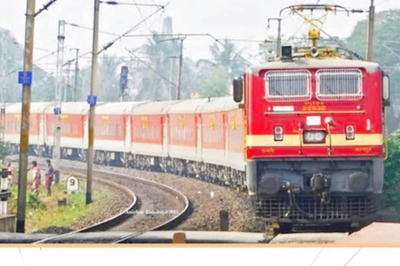
views
Bengaluru: Superstar Rajinikanth has claimed that he had worked as a Kannada journalist for some time in Bengaluru. All “Thalaiva” fans know about his bus conductor days in Bengaluru. BTS conductor Rajinikanth is as famous as film hero Rajinikanth. He is a part of Bengaluru’s folklore. But journalist Rajinikanth is a new revelation. Before this he had never claimed that he was a journalist.
On Tuesday speaking to media persons in Chennai he said: “I was also a journalist. I was a Kannada journalist and had worked in Samyukta Karnataka newspaper as a proofreader”.
But his claim was news to Samyukta Karnataka management itself. Most of the people working there had no idea about it. When News18 contacted Loka Shikshana Trust (it runs the 90-year-old leading Kannada newspaper) Chairman Umesh Bhat seeking clarification, he said that Rajinikanth was not on their rolls as an employee. He said, “I checked with our HR department and senior staff members. They told me that Rajinikanth’s close friend Ramachandra Rao was a proofreader in our newspaper. Rajinikanth used to come to our office to meet his friend. He used to help him. But it was an unofficial job for him. I don’t think that we paid him any money for that. Rajinikanth was interested in journalism and was helping his friend Ramachandra Rao who retired a few years ago."
However, he added, that it was an honour for the newspaper to be associated with Rajinikanth and they will invite him to their office soon. Rajinikanth was born into a Marathi family in Bengaluru and was named Shivaji Rao Gaikwad. His father was a constable with Karnataka police. Rajinikanth went to government run Fort high school near city’s KR market. Later he joined the government owned Bangalore Transport Service (BTS) as a conductor. The renowned Tamil movie director K Balachander spotted his talent for acting and invited him to Madras (now Chennai) to try his luck in the film world.
Samyukta Karnataka was founded by the nationalist leaders to fight for India’s independence from the British and unification of all Kannada speaking areas. It has six editions across the state and is known for its independent editorial stance.


















Comments
0 comment